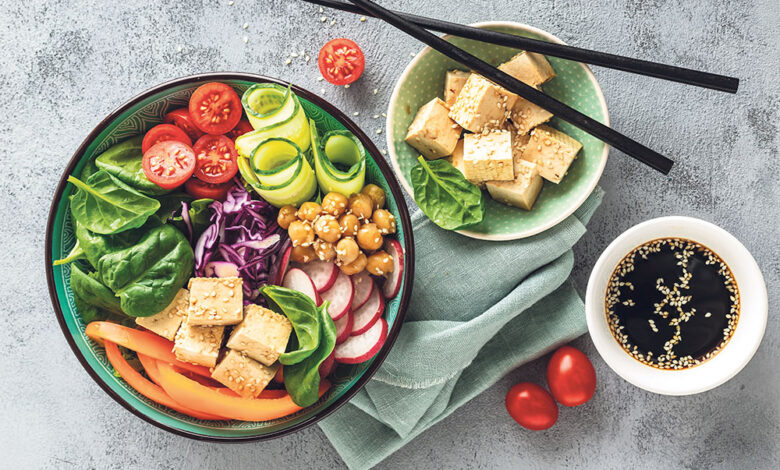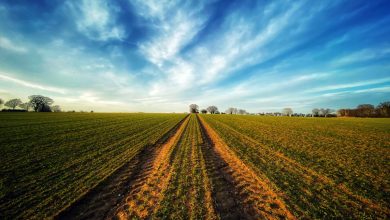Plant power – ethical protein that packs a punch
Editorial Feature

Those of us following a meat-free diet, whether for ethical or health reasons, will be no stranger to the idea that it’s difficult to get enough protein. However, here’s some nutrient packed options with high levels of protein, all from plant sources
First of all let’s look at how much protein we actually need. The World Health Organization recommends the amount of protein we need to eat in order to maintain health is 0.75g per kg of bodyweight per day for both sexes1. Therefore an individual weighing 63.5kg (10st) would require 47.6g of dietary protein per day. Our dietary protein intake needs to increase as we get older. In those that exercise regularly, protein requirements are also higher.
It’s worth mentioning that while animal proteins are considered ‘complete’ proteins, as they contain the full requirement of amino acids that the body needs to function properly, consuming plant-based ‘incomplete’ proteins can also provide the body with this full list of amino acids – it just requires a little more knowledge about what you are eating (beans on toast, for example, is a complete protein meal).
Also, the plus side to eating a plant-based diet is that you get the benefit of all those extra vitamins, minerals, antioxidants and polyphenols from consuming a wider variety of delicious plant-based foods!
Best plant sources of protein
Tempeh 19g / 100g
Made from fermented soya beans, tempeh is vegan and highly nutritious. It’s low in carbohydrate, approx 5g per 100g, and on average has 6g of healthy fats per 100g, and packs a further punch with high levels of B vitamins, calcium, magnesium and zinc for the immune system. Tempeh also contains prebiotics, which may help promote digestive health and reduce inflammation and even improve cognitive function.
Tofu 8g / 100g
Tofu (bean curd) is made by curdling fresh soya milk, and pressing it into a block – in a similar fashion to how traditional dairy cheese is made. Although not as high in protein as other foods listed here, it does contain all nine essential amino acids, along with iron, calcium, magnesium, copper, zinc, vitamin B1 and the minerals manganese and phosphorous (trace minerals needed for the healthy function of the brain, nervous system and enzyme systems), and has numerous reported health benefits.
Peanuts 26g / 100g
Peanuts are delicious, protein-rich, full of healthy fats, vitamins and minerals. Although unrelated to tree nuts, peanuts are actually a legume, and related to beans, lentils, and soy and therefore share similar characteristics. They are good sources of amino acids and essential B vitamins, copper, manganese, vitamin E, phosphorus, and magnesium. Studies have linked them to weight loss and improved heart health.
Hemp seeds 25g / 100g
Hemp seeds are the seeds of the hemp plant, Cannabis sativa (yes, that one), and are exceptionally nutritious and rich in healthy fats, protein and are a great source of vitamin E and minerals, such as phosphorus, potassium, sodium, magnesium, sulphur, calcium, iron and zinc. They are exceptionally high in omega-6, omega-3 and fatty acid gamma-Linolenic (GLA), which is linked to numerous health benefits and can also be found in the oils of evening primrose, blackcurrant seed, and borage seed.
To be featured in any upcoming features we are arranging please email laura@hurstmediacompany.co.uk or editorial@hurstmediacompany.co.uk






